Let’s talk about values: Theresa Windus
This year, Ames National Laboratory introduced a new set of values: Creativity, Collaboration, and Community. To help employees embrace them, Insider is launching a series of monthly columns by guest writers who have been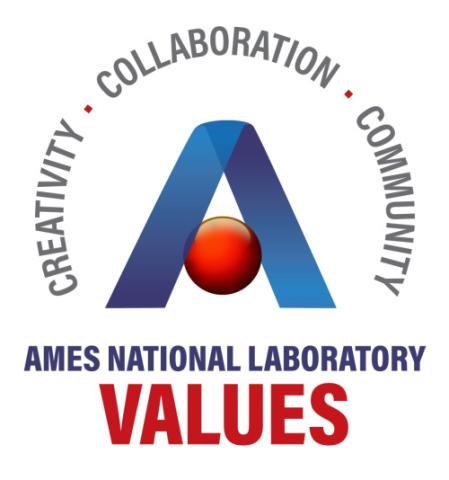 asked to share what these values mean to them and to their work. This month, Scientist Theresa Windus explores her thoughts on Community.
asked to share what these values mean to them and to their work. This month, Scientist Theresa Windus explores her thoughts on Community.
Community: We care. We’re respectful. Everyone belongs. We execute our mission by fostering an environment of openness, growth, and trust.
We value our different backgrounds and achieve more by uniting our worldviews, experiences, and areas of expertise. We believe that each person belongs fully, as an equal.
When I am asked “What do you love about working at Ames National Laboratory?”, my first response is always that I get to work with great people. Throughout the Lab I find friendly, respectful people who put ingenuity and hard work into making their sphere of influence better. I have worked at quite a few places during my career and Ames is special. Here, the Lab Values are not external forces that help people behave in a certain way. Instead, the Lab Values are derived from the internal forces of the people in the Lab. In other words,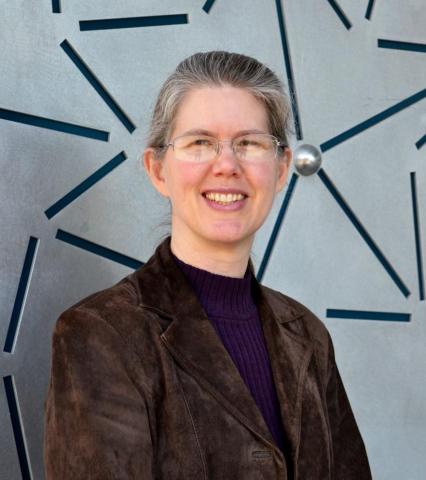 the Values reflect the way most of us operate our daily lives from our core internal values. This is incredibly powerful and has had a great impact on the work environment and how we experience our great accomplishments together.
the Values reflect the way most of us operate our daily lives from our core internal values. This is incredibly powerful and has had a great impact on the work environment and how we experience our great accomplishments together.
I have personally felt cared for and respected by those who I work with, which allows me to care for and respect those around me. Even the smiles that I see on tough days are really helpful! This sense of community enables me to trust others – a necessary foundation on which to build collaboration and creativity. Without this trust, our best ideas and solutions to challenges get bottled up inside without a voice. We can become hesitant to speak out for fear of “having a stupid idea,” or that others will judge us harshly. I am happy to say that most of the time we have this trust (at least in my experience), and can work together to solve even difficult relationship and work challenges. I am in an environment where I can have a frank discussion of a difficult science problem, get honest feedback on my ideas, still move forward together to find solutions – and remain friendly during those discussions! Of course, life isn’t always tea and chocolate – we all have our off days or people that we find challenging to work with. We are human. But with a culture of trust and community, these are (hopefully!) the exception and can be resolved with grace and respect.
Well, I could go on a lot longer about how much I appreciate my co-workers and our Lab culture, but this isn’t a proposal. I’m grateful to all of you for making this a great place to work!
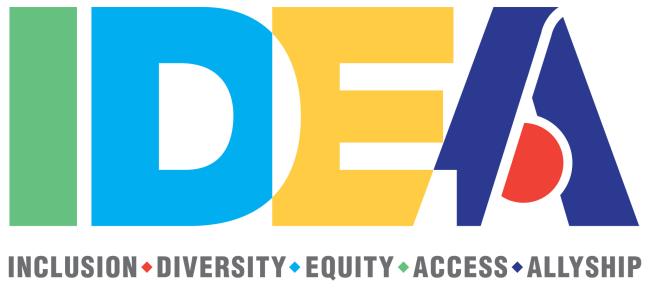
July IDEAs: Disability Pride Month & How to Be an Ally
Disability Pride Month: Celebrating the Americans with Disabilities Act
Disability Pride Month is observed in July as it marks the anniversary of the Americans with Disabilities Act, an act that broke barriers to inclusion in society. The Americans with Disabilities Act was passed July 26, 1990 which prohibits discrimination against individuals with disabilities.
Unfortunately, barriers still exist today, and it is important to honor and recognize all types of disabilities. Many individuals identify with them and the different types of support which are needed to succeed. Some disabilities are visible, and others are not.
The disability pride flag was introduced in 2019 by writer Ann Magill, a disabled woman with cerebral palsy, to  symbolize and raise disability awareness. The initial flag was redesigned in 2021 due to feedback Magill received from members of the disabled community. There were once zig-zagging lines, instead of straight ones which were originally chosen to represent the barriers the disabled community faces. But individuals who experience epilepsy and migraines spoke up, pointing out it posed a risk to them when viewed, especially online. The redesign was completed to make it more accessible for everyone.
symbolize and raise disability awareness. The initial flag was redesigned in 2021 due to feedback Magill received from members of the disabled community. There were once zig-zagging lines, instead of straight ones which were originally chosen to represent the barriers the disabled community faces. But individuals who experience epilepsy and migraines spoke up, pointing out it posed a risk to them when viewed, especially online. The redesign was completed to make it more accessible for everyone.
What do the elements of the Disability Flag Mean?
1. The Black Field: this field represents the disabled people who have lost their lives due not only to their illness, but also to negligence, suicide, and eugenics.
2. The Colors: each color on this flag represents a different aspect of disability or impairment.
Red: physical disabilities
Yellow: cognitive and intellectual disabilities
White: invisible and undiagnosed disabilities
Blue: mental illness
Green: sensory perception disabilities https://www.thevaluable500.com/spotlight/disability-pride-month
Viewpoint: How to Be an Ally Without Making It About You
By Julie Kratz, the founder and chief engagement officer of consulting firm Next Pivot Point in Indianapolis.
Many of us know that an ally is someone who is helpful to people different from themselves. But not many people realize that there are different types of allyship. Active allyship drives systemic change through individual actions. In the workplace, it means getting involved in employee resource groups, as well as mentoring and sponsoring workers of different races, ethnicities, genders, abilities, and more. Leaders who are active allies elevate and amplify the voices of others. Conversely, performative allyship is about the ally's ego. Someone who exhibits this type of allyship proclaims they are an ally without actually doing the work. These individuals focus on how being an ally reflects well on them, rather than on how to advance diversity, equity, and inclusion (DE&I) to support others' success.
To act as an ally, we recommended an umbrella approach – choosing to be a mentor, sponsor, challenger, or coach. It's more of a "choose-your-own-adventure" way of being an ally. And allyship doesn't stop in the workplace. You can't be a successful ally at work if you're not willing to practice active allyship in your personal spaces – whether that's with your family, community, or network.
No One-Size-Fits-All Recipe to Allyship
People often ask what they should do to become an active ally. Consider these questions as guideposts to help direct your thinking:
- How much do you mentor folks who are different from you?
- How do you advocate for folks who are different from you?
- How can you provide feedback and stretch assignments to diverse groups of people?
- How could you coach, listen and create space for self-discovery for others who are different from yoursel
- When you reflect on the ally you want to be, ask yourself:
Why does being an ally matter to you?
What type of ally do you aspire to be?
What does inclusivity look like?
Write down everything that comes to mind, and formulate a concise "why" for allyship. We call this your "ally why" statement. In our work with inclusive leadership and allies, this is the first step on the journey. If you don't have a strong conviction for DE&I, then you risk falling into the trap of performative allyship or just showing up when DE&I is popular in the news cycle – and fading away when the news shifts to something else.
The next step is having a plan for allyship. With anything that's important in your life, personally or professionally, you would have goals and a framework for accountability. It's just like making any other life change – whether that's getting healthier, growing into a new role at work, or considering a career change. If you don't have a plan, you're not going to get there.
A solid allyship plan has three key ingredients:
- Your "ally why."
- A definition of what being an ally means to you.
- Goals and concrete action steps with timelines and resources.
Allies Do Not 'Save the Day'
Getting feedback on your plan is critical to success. A well-intentioned client of ours once left a session early in his journey and made a mistake that many aspiring allies make early on: He took his plan cheerfully to a group of female colleagues and declared, "I'm going to be an ally for you."
As you might imagine, that came across to the group as self-serving saviorism. Allies do not rescue people; they do not save the day. They listen, ask questions, and help others while not focusing on how they will profit.
Want others to change? You can only change you. DE&I work can be taxing because it may feel like you are carrying the weight of other people's problems. Creating space to listen when you
desperately want your own voice to be heard, and looking in the mirror instead of pointing the finger the other way is not easy.
Active allyship is about setting aside differences and looking for commonalities. If you want others to listen, you must listen first. If you want others to be more open-minded, be more open-minded first. If you want others to embrace DE&I, model it positively for them to embrace as well.
Reflect on this: What is your role in creating positive change? What kind of ally do you want to be? Do you want to be a better friend, a more inclusive parent or caregiver, or help your family become more open-minded?
Remember, allyship is a journey, not a destination. There are no shortcuts and no instant wins. At times it can feel like one step forward, then two steps back. Our behaviors are manifestations of our cumulative life experiences. Unlearning, shifting and learning new things takes time. Our brains don't like to change. We're fighting primitive hard wiring. Allies do hard things. They lean into positive change and model it for others.

Poetry in Science Challenge: Submit for prizes by Aug. 6
Ames Lab is looking for a creative take on our science through poetry. Four top choices will be selected for a $25 cash prize and publication in the August ESH Newsletter. Poems must be related to science conducted at Ames Lab (past, present, and future).
Who: All Ames Lab staff
What: Write a poem about YOUR science, or about how science at Ames Lab affects your life or the life of others
When: Submit poems to safety@ameslab.gov by August 6
Why: To showcase our science and its influence through creativity and the written word
How: Write in any poetic form: rhyme, free verse, long, short, sonnet, rondel, etc.
J. Robert Oppenheimer, the theoretical physicist often referred to as "the father of the atomic bomb," was an avid reader and writer of poetry; his favorite poets were John Donne and T.S. Eliot. The only poem of note published by Oppenheimer was Crossing. The poem appeared in the summer 1928 issue of the Hound & Horn.
Procurement Q&A: What is Ratification?
Q: What is a ratification?
A: A Ratification is the confirmation or adoption of an action which was not approved and may not have been authorized. The Laboratory uses this process of approving agreements made between suppliers or third parties by individuals not delegated the authority to make external commitments on behalf of the Laboratory. Ratification actions are not a usual or customary business practice of the Laboratory. Unauthorized contractual commitments range from simple misunderstandings to serious deviations from procurement policies and procedures.
Q: How do I know if I have a Ratification?
A: If you have made a commitment to a vendor (verbally, via email or implied in other ways) for payment of goods or services, using DOE funds, without submitting a Purchase Requisition, it is likely considered a ratification.
After you submit your Purchase Requisition and other supporting documentation, Procurement will review the information and notify you if a Ratification is warranted.
Q: How will I receive a notice that a Ratification is warranted?
A: The Ratification Approval Process Form (48300.048) will be emailed to you by a Procurement Agent. You will be asked to complete the form and provide details, including supporting documentation.
Q: What actions need to be taken?
A: You will be asked to complete the form, including:
- A signed statement describing the circumstances surrounding the particular action, such as:
What bona fide Ames Laboratory requirement necessitated the commitment.
Whether any benefit to Ames Laboratory was received.
The value of the goods or services received.
Whether payment has been made. Whether competitive prices were sought or obtained.
Why normal purchasing procedures were not followed.
Any other pertinent facts. - All invoices, statements, receipts, or other documentary evidence of the transaction.
- You will forward the completed document to your immediate manager for their comments and signature agreeing to the Ratification or declining the Ratification.
- The form will be returned to Procurement for review and approval by Legal, Procurement Director, and/or COO. If a recommendation for approval is granted by the Procurement Director or COO, the Procurement Agent submits documentation to the AMSO CO for DOE approval or disapproval.
If AMSO CO approval is provided, the Procurement Agent will prepare, sign, and distribute the appropriate contractual document.
If AMSO CO disapproves the ratification request, the Procurement Agent will provide this disapproval documentation to the Procurement Director. The Procurement Director or COO will notify the employee through the appropriate management levels of the reasons for this decision. This notification must also inform the employee that the obligation may be his or her personal responsibility. Additionally, the Procurement Agent will notify the provider of the goods or services that the purchase was unauthorized and that Ames Laboratory assumes no liability in the matter.
New Process for Remote Work Agreements
Ames National Laboratory is supportive of flexible work arrangements that benefit the employee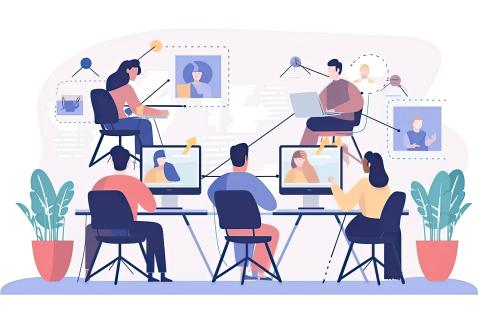
as well as the Lab, the greater ISU community and the DOE. Remote work agreements are needed for employees whose work is regularly scheduled to be solely off-site in Iowa and for those who work out of state. Telework agreements are for employees who work both on-site and off-site regularly. For more information on these arrangements and the approval process, please read below.
Remote Work Agreements
On July 1, 2023 the ISU policy Employment of Out-of-State and Out-of-Country (International) Residents went into effect This policy applies to the P & S and Merit employees of Ames National Laboratory. This will result in a change to the process for Ames Lab employees, in that the Senior Vice President and Provost’s (SVPP) Office now needs to approve our remote work agreements prior to implementation. Previously, the approval process was managed within Ames Lab.The remote work agreement process is organized by the Human Resources and Diversity Office.
The requirements for employees with different circumstances are explained below:
- Working out of state or out of country - Update or initiate your agreement now; Contact humanresources@ameslab.gov for guidance.
- Working fully remote, in-state, new request or new hire: Must have approved remote work agreement before working off-site. It is recommended that you initiate the remote work request when you post the position.
- Working fully remote, in-state, with an agreement in effect now: Submit a new remote work agreement at least two weeks prior to expiration of the current agreement.
- Postdocs: If a remote work agreement is needed due to working off-site routinely, approvals are required by Ames Lab personnel only (not the SVPP).
- Employees on visas: Consult with human resources regarding any employee on a visa before supporting any off-site arrangement, as there may be specific regulations related to visa status. For example, those with J-1 status must work on-site at least 60%. H-1B status requests must have an accurate work location upon the time of the request, and proposed location changes would require an amended petition.
- Remote work agreements must be approved and signed by the immediate supervisor, the division director or equivalent, the Laboratory Director and the SVPP, and they are retained by the Human Resources office.
Telework Agreements
- If you have a telework agreement in place, please check the effective dates of your agreement and establish a schedule for discussing this with your supervisor and updating it before it expires.
- Supervisors, please ensure that all employees who report to you that work both on-site and off-site in Iowa have a current telework agreement.
- Telework agreements must be approved by the immediate supervisor, and they are retained by the employee and supervisor.
- The telework agreement template can be found on Service Now: Telework Agreement New Process for Remote Work Agreements.
Please contact Human Resources and Diversity at humanresources@ameslab with any questions or concerns.
ANNOUNCEMENTS
Kendall Clark to retire Aug. 1
Please join us in extending warm wishes to Kendall Clark, who is retiring effective Aug. 1. Kendall has worked as a Facilities Mechanic III for Ames National Laboratory since 2021, and previously worked in the same role for Iowa State University for almost a decade.
You may email Kendall at kclark@ameslab.gov to help him celebrate his retirement, or stop by Jane Hahn’s desk at 158B Metals Development to sign a card.
Congratulations and best wishes in your retirement, Kendall!
Mark your calendars for Red Cross blood drive Aug. 29
Ames National Laboratory is proudly partnering with the American Red Cross to host a blood drive on Tuesday Aug. 29.
Please join our lifesaving mission and schedule your appointment today! 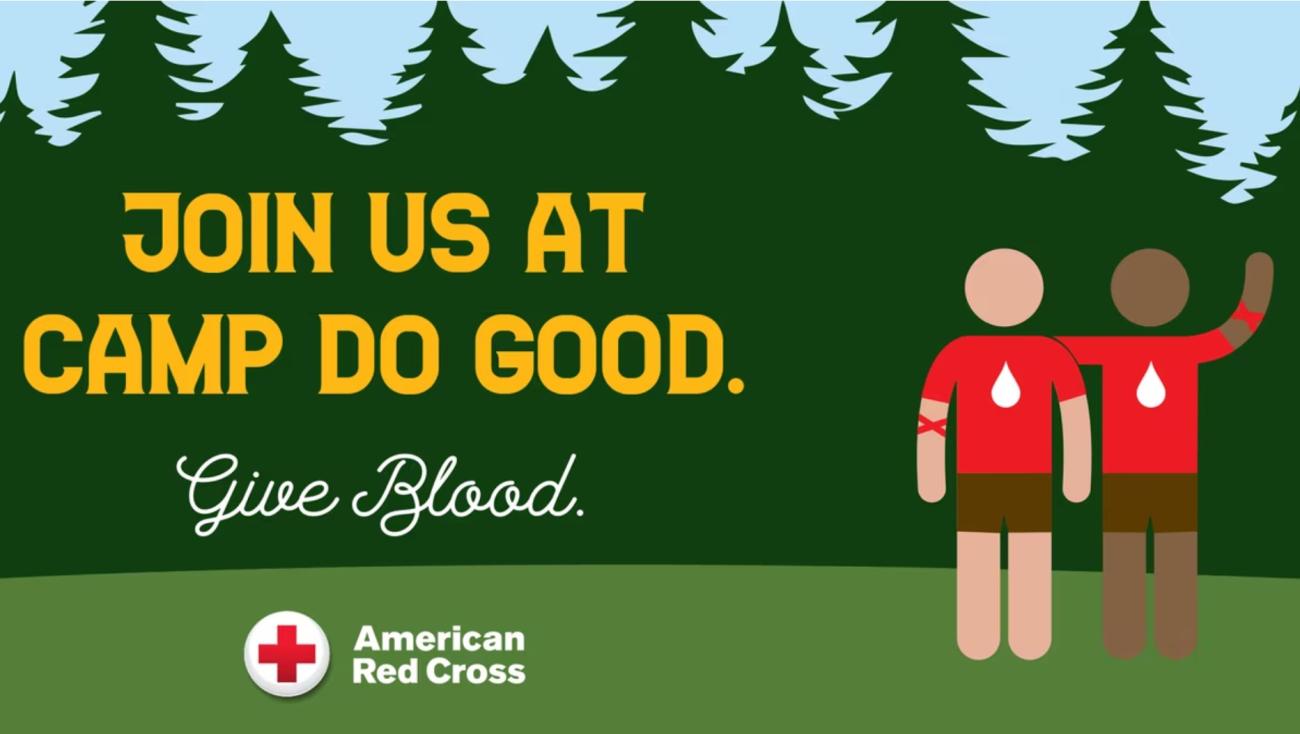
- Drive Details:
- Site: Ames Laboratory
- Room Name: 301 Spedding
- Date: Tuesday Aug. 29
- Time: 10 a.m.-3 p.m.
CLICK HERE to schedule an appointment.
All presenting donors will receive a $10 e-gift card to a movie merchant of choice!
PLUS – get entered into a raffle for a chance to win a Summer Fun Grill package that includes; wireless portable travel speaker, 60 qt wheeled insulated cooler, and standup propane gas grill!
Stress Management: Reducing the Load and Building Resilience for Health and Wellbeing
Join one of our interactive Learning Hour presentations by Iowa State Professor and Associate Chair of Psychology, Dr. Nathaniel Wade. In each offering, Dr. Wade will explore stress management by identifying ways to help attendees reduce the load and build resilience. He will focus on those things within your control and help you take steps that are specific and measurable. Sessions will be held in 205 TASF as follows:
Tuesday, Aug. 1 from 10:30-11:30 a.m.
Wednesday, Aug. 9 from 2-3 p.m.
If interested, please RSVP to ensure available seating. Questions can be directed to Nancy Turner, nturner@ameslab.gov. Come and get inspired to move toward greater health and wellbeing in your own life!
